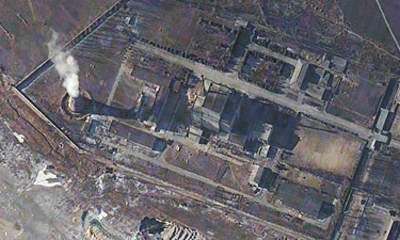North Korea To Restart Nuclear Reactor
North Korea will restart all nuclear facilities including its shuttered Yongbyon reactor, the official KCNA news service has said.
It will rebuild and resume its mothballed uranium enrichment facility and the 5 MW Yongbyon reactor, which was closed in 2007 as part of a disarmament-for-aid talks that have since stalled.
When it is fully running the reactor is capable of churning out one atomic bomb worth of plutonium - the most common fuel in nuclear weapons - a year.
A nuclear energy spokesman said the move was being made in line with a policy of "bolstering the nuclear armed force both in quality and quantity" as well as solving "acute" electricity shortages.
It wasn't immediately clear if North Korea had already begun work to restart facilities and experts estimate it could take anywhere from three months to a year to reactivate the reactor.
In response, UN Secretary General Ban Ki-moon warned that "nuclear threats are not a game".
"The current crisis has already gone too far. Things must begin to calm down. There is no need for the DPRK (Democratic People's Republic of Korea) to be on a collision course with the international community," he said at a press conference.
China, Pyongyang's only major supporter, unusually described the north's plans as "regrettable".
The step will boost fears in Washington and among its allies about North Korea's push for nuclear-tipped missiles that can reach the US, technology it is not currently believed to have.
The North's leader Kim Jong-Un has been issuing daily war-like threats in recent weeks, including one to launch missile attacks on American targets in the region. He also claims the North is in a "state of war" with South Korea.
The rising rhetoric has been met by a display of US military strength including flights of nuclear-capable bombers and stealth jets at annual South Korean-US military drills.
Pyongyang conducted its third nuclear test in February, prompting UN sanctions that have angered its leaders and led to the current tensions.
The country has since declared that making nuclear arms and a stronger economy are the nation's top priorities.
The country added the 5 MW graphite-moderated Yongbyon reactor to its nuclear complex in 1986 after seven years of construction, adding the operation is aimed at generating electricity.
It takes about 8,000 fuel rods to run the reactor. Reprocessing the spent fuel rods after a year of reactor operation could yield about seven kilogrammes of plutonium - enough to make at least one nuclear bomb, experts say.
North Korea began building a 50 MW and a 200 MW reactor in 1984, but their construction was suspended under a 1994 nuclear deal with Washington.

 Yahoo News
Yahoo News 

